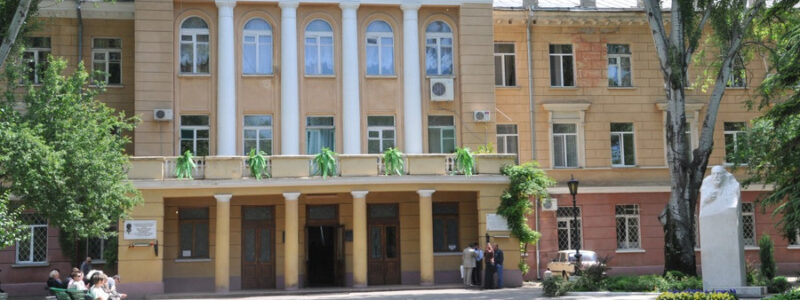
The Filatov Institute of Eye Diseases and Tissue Therapy of the National Academy of Medical Sciences of Ukraine (Odesa) has been receiving humanitarian aid for the second year in a row – a drug for the treatment of intraocular malignant tumors in children from Aspen Pharmacare Holdings Limited.
As the Institute’s clinic told Interfax-Ukraine, the drug is used to treat the disease according to the method of combined polychemotherapy developed by its doctors. It involves injecting the drug directly into the tumor in combination with general polychemotherapy. The use of this method makes it possible to preserve the eye affected by the tumor and even vision in 80% of cases.
The drug melphalan, manufactured by Aspen Pharmacare Holdings Limited, is used as an intraocular injection agent.
“Unfortunately, in recent years it has been impossible to purchase melphalan for injection in Ukraine. The Institute has taken active steps to obtain the drug, and for the second year we have been receiving the drug directly from the company as charitable assistance,” the Institute said.
It is noted that the availability of these medicines enables young patients to receive the necessary treatment, which not only saves their lives, avoids removing the tumor along with the eye, but also preserves their vision.
“The Institute expresses its deep gratitude to Aspen Pharmacare Holdings Limited, Senior Executive Director of Aspen Group Mr. Stavros Nikolau, Head of the Patronage Service of the Ministry of Foreign Affairs of Ukraine Olga Nikitchenko and Ambassador of Ukraine to South Africa Lyubov Abravitova for their assistance in obtaining the drug,” the clinic emphasized.
Retinoblastoma is an intraocular highly malignant retinal tumor that develops mostly in children during the first two years of life and accounts for 89.3-98.2% of all intraocular tumors in children. The incidence of retinoblastoma in the world is currently one case per 10-15 thousand newborns. Due to the asymptomatic course of the disease, up to 85-86% of children with this diagnosis are admitted to clinics with advanced retinoblastoma. Previously, and still in many clinics, the only way to save a child’s life was to remove the tumor along with the eye.
In Ukraine, retinoblastoma is treated at the Department of Pediatric Ophthalmopathology at the Filatov Institute of Eye Diseases and Tissue Therapy. In recent years, the clinic has treated about 300 children with retinoblastoma aged three months to eight years. Each patient receives from 3 to 20 injections depending on the stage of the disease.